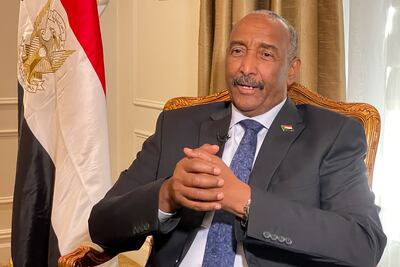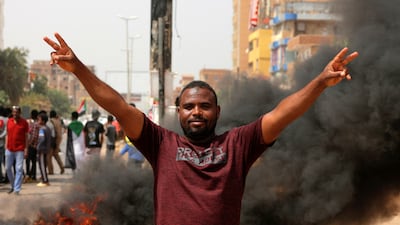One of Sudan’s most powerful pro-democracy movements has issued a 40-page political blueprint for the resumption of the country’s democratic transition, which was derailed when the military seized power in a coup last year.
The document by the resistance committees, which have spearheaded opposition to the ruling generals since the October 25 coup, envisions no active political role for the military in the transitional period and beyond.
The document, issued on Wednesday, is open to change, said the committees, which also called on other pro-democracy groups to rally behind it.
“We in the resistance committees are convinced that the basis for resistance must be rooted in clear goals and programmes that guide revolutionary action,” said the committees, a neighbourhood-based rank-and-file movement.
It said the document, formally called “The Revolutionary Charter to Establish People’s Power,” represented views garnered from all four corners of the vast Afro-Arab nation.
“With this charter, we restore the power hijacked from the people,” it said.

Given its uncompromisingly critical view of the military and its role going forward, the document is unlikely to provide a way out of the political crisis crippling Sudan since army chief Gen Abdel Fattah Al Burhan seized power last October.
It underlines the huge gap separating the military and the pro-democracy movement, which calls for the army to remove itself entirely from politics and for it to be placed under civilian oversight.
Ominously, the hard-line approach adopted by the committees in the document could mean the group would continue its street protests if a deal is reached by the military and other, less radical pro-democracy groups.
It also constitutes the latest attempt by a pro-democracy or independent group to lay out a road map for Sudan’s democratic transition after its derailment by the coup.
Sudan's lawyers’ union recently published a political road map of its own. The Forces for Freedom and Change, or FFC, a key pro-democracy alliance, has also come up with several documents spelling out its vision for an end to the crisis.

Sudan’s political deadlock has been compounded by the worst economic crisis in living memory, with triple-digit inflation and a soaring fuel and food import bill. Destructive flooding in several parts of the country has deepened the crisis.
The situation has been made worse by the use of deadly force against street protesters since the coup. At least 117 protesters have been killed by security forces and another 6,000 injured since anti-military rallies began in Khartoum and across much of Sudan since last October.
The West, which has suspended billions of dollars' worth of aid to Sudan since the coup, has repeatedly renounced the use of deadly force by security forces. The military said it was investigating the killing of protesters, but has not yet publicised the findings.
The Resistance Committees’ charter used scathingly tough language on the military. It repeated that the army, along with the police, security and intelligence agencies, must be placed under civilian oversight and subjected to restructuring supervised by the executive, the judiciary and legislature.
“The Sudanese Army is an institution conceived to be a tool of colonial rule in the past and present,” said the charter. “Delaying the confrontation with the junta deepens and perpetuates the problem of state violence."
It said a power-sharing agreement reached in 2019 between the military and the FFC allowed the military to take advantage of national economic resources and the paramilitary Rapid Support Forces, RSF, to morph into a “developed socio-economic institution both technically and logistically".
The RSF is rooted in a militia that fought on the government’s side against ethnic African rebels in the western Darfur region in the 2000s. It is accused of committing gross human transgressions in Darfur during that civil war.

RSF commander, Gen Mohamed Hamdan Dagalo, is reported to be resisting the assimilation of his men into the armed forces. Gen Dagalo is also Gen Al Burhan’s deputy on the ruling, military-led Sovereign Council.
The committees’ charter calls for the repeal of all legislation limiting freedoms or encroaching on women’s rights. It proposes a “revolutionary” legislature of 2,398 members to temporarily take the reins of power immediately after the military steps down.
The document also has provisions for a transitional legislature, a mechanism for drafting a constitution and a transitional government.
The military has meanwhile been rolling back some of the freedoms won since the ousting in April 2019 of dictator Omar Al Bashir following a wave of mass street protests against his 29-year rule.
In the latest step in its clampdown on critics, authorities this week launched legal proceedings against a prominent Khartoum newspaper and the bar association.
On Monday, the prosecutors' cyber crimes unit issued an order to block the website of Al-Sudani newspaper, one of the country's most respected dailies.
A day earlier, the prosecution called in the head of the steering committee of the lawyers' union for questioning, and ordered the seizure of its headquarters, a lawyer for the group told Reuters.


